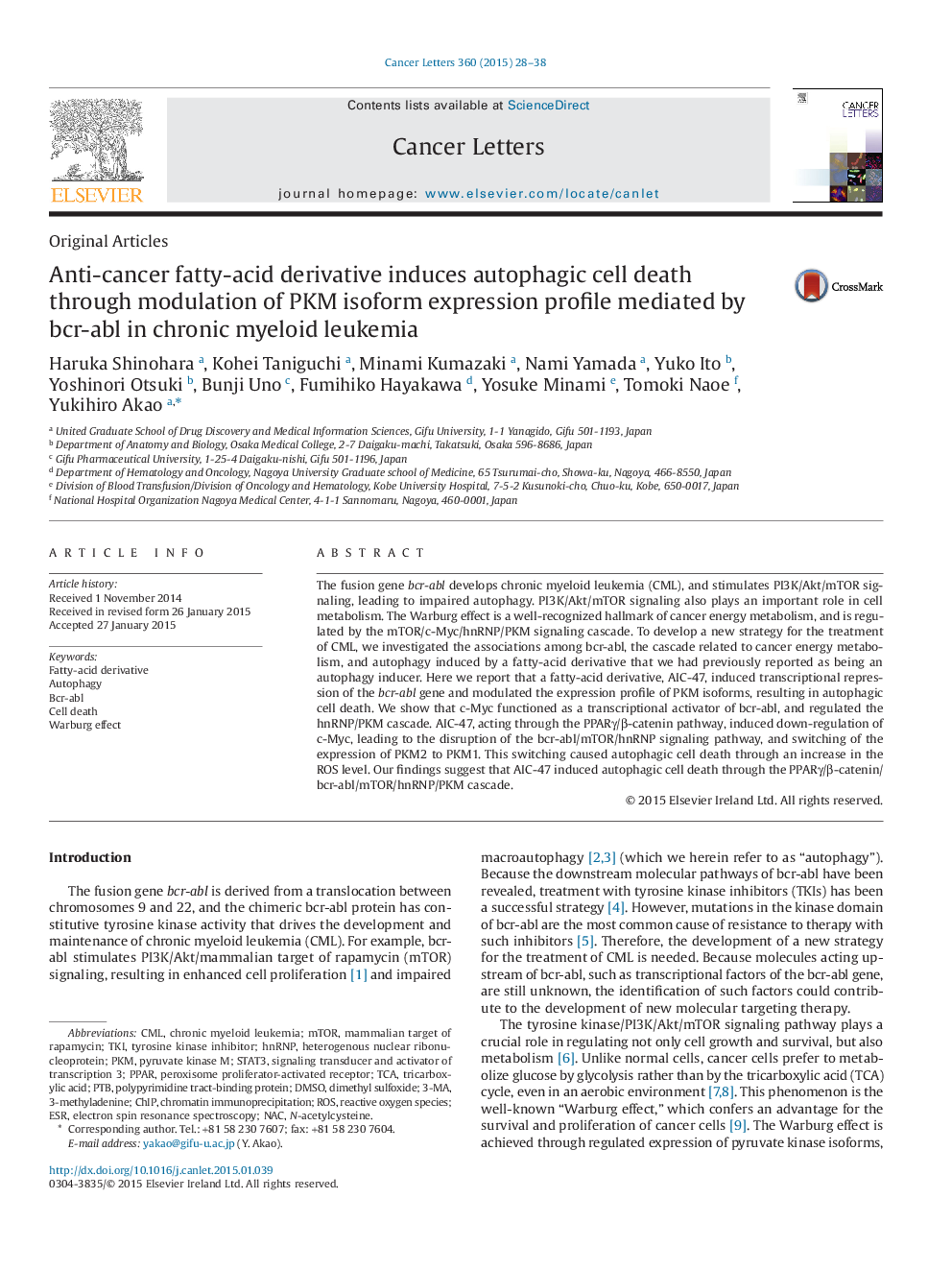| Article ID | Journal | Published Year | Pages | File Type |
|---|---|---|---|---|
| 2112495 | Cancer Letters | 2015 | 11 Pages |
The fusion gene bcr-abl develops chronic myeloid leukemia (CML), and stimulates PI3K/Akt/mTOR signaling, leading to impaired autophagy. PI3K/Akt/mTOR signaling also plays an important role in cell metabolism. The Warburg effect is a well-recognized hallmark of cancer energy metabolism, and is regulated by the mTOR/c-Myc/hnRNP/PKM signaling cascade. To develop a new strategy for the treatment of CML, we investigated the associations among bcr-abl, the cascade related to cancer energy metabolism, and autophagy induced by a fatty-acid derivative that we had previously reported as being an autophagy inducer. Here we report that a fatty-acid derivative, AIC-47, induced transcriptional repression of the bcr-abl gene and modulated the expression profile of PKM isoforms, resulting in autophagic cell death. We show that c-Myc functioned as a transcriptional activator of bcr-abl, and regulated the hnRNP/PKM cascade. AIC-47, acting through the PPARγ/β-catenin pathway, induced down-regulation of c-Myc, leading to the disruption of the bcr-abl/mTOR/hnRNP signaling pathway, and switching of the expression of PKM2 to PKM1. This switching caused autophagic cell death through an increase in the ROS level. Our findings suggest that AIC-47 induced autophagic cell death through the PPARγ/β-catenin/bcr-abl/mTOR/hnRNP/PKM cascade.
